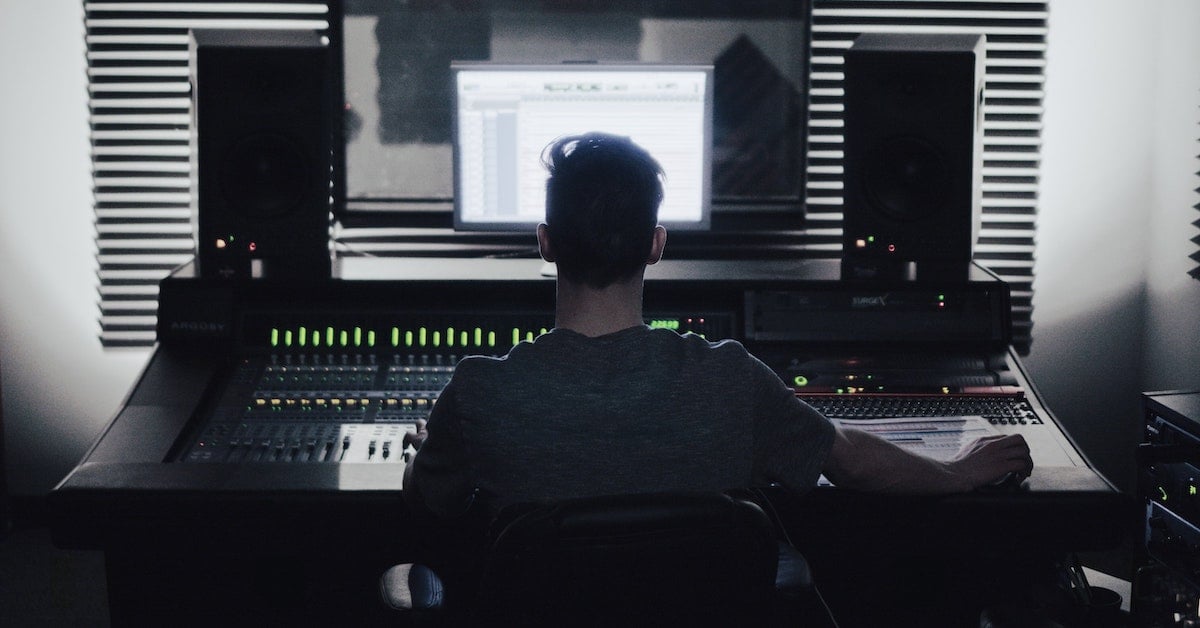Best practices for taking care of your ears that will help you in the long run.
For audio professionals, the conversation around hearing and health tends to take place only after a problem arises, but there are things you could be doing on a regular basis to take care of your ears that will serve you well over time. Here is a look at six best practices:
1. Don’t mix at a high volume for long
This has been said repeatedly but it needs to be said again – don’t mix loud for extended periods of time. Prolonged exposure to loud sounds causes ear fatigue and it will damage your hearing in the long term. Mixing at reasonable volumes is good advice that everyone needs to heed. The rule of thumb that you’ll come across most often, if you ask for mixing advice, is that you should mix at a volume over which you can carry out a conversation without raising your voice.
There are other benefits as well. For example, you can hear compression problems better at lower volumes; the balance (or lack of it) between instruments is more apparent when listening quieter. While mixing bass, it is good to switch between turning the volume up and down to hear if it sits correctly in the mix at each level. Mixing is a very nuanced process and there is no ‘right way’ to achieve a good mix, but for the sake of your ear health, get into the habit of mixing at a reasonable volume.
2. Wear protective earplugs at concerts
Noise-induced hearing loss is preventable. Get into the habit of carrying a pair of earplugs with you and using them when you’re in loud places – concerts, nightclubs, sporting events, cinemas and even areas where there is sustained construction activity or machinery sounds. A good pair of earplugs can reduce noise by as much as 20-30dB. You can choose to have a pair custom-fitted to your ears or buy a reusable pair from a reputable brand. Your ears will thank you for it.
If you do wear earplugs regularly, be sure to keep them clean and dry, because you don’t want to create a moist environment in the ear, which can facilitate the growth of bacteria. As long as you clean and dry the earplugs after each use and store them in a hygienic case, you will enjoy all the benefits of using them without suffering any of the potential side effects.
3. Visit an ENT to deal with earwax buildup
The general consensus is that you do not need to clean your ears on a daily basis; they are self-cleaning. Using a Q-tip to get rid of what you perceive to be excess wax only makes the problem worse by pushing the wax deeper into the ear canal. For most people, their ears will do the task of clearing out earwax in the normal course of events. For some people though, earwax buildup is a real problem that can cause a blockage and affect hearing significantly.
There are several suggested at-home treatments for getting rid of excess earwax, like using hydrogen peroxide, ear candles, warm mineral oil or glycerin – to name a few – but all of those approaches have risks associated with them. It is safest, depending upon healthcare plans and budgets, to visit a medical professional, get a checkup and have them do the cleaning to ensure that you don’t accidentally cause damage while trying to clean your ears.
"Mixing is a very nuanced process and there is no ‘right way’ to achieve a good mix, but for the sake of your ear health, get into the habit of mixing at a reasonable volume."
4. Don’t ignore changes in hearing
If you’re consistently having difficulty understanding speech, or if you need to turn up the volume on your entertainment more and more, it might be time to get your ears checked. Gradual changes in hearing are easy to miss but if the problem becomes apparent, it is best to seek the opinion of a healthcare professional. We have to acknowledge that people fear the idea of visiting the ENT and getting tested for hearing loss, especially when, as an audio professional, their livelihood depends on it. There’s also the stigma and the sometimes self-inflicted shame of hearing loss that prevents people from acknowledging the reality of the situation and, tragically, making it worse for themselves.
It is also easy to ignore changes in hearing if you are relatively young. The common misconception is that hearing loss only affects older people, but any changes in hearing should be checked out because they could be signs of something that needs to be investigated further – is the change being caused by certain medications that you might be taking, or is it the side effect of an illness? What you should definitely never ignore is a sudden change in hearing – overnight, or in the span of a few days. Seeking the opinion of your healthcare practitioner is crucial for getting the appropriate treatment that could aid with the recovery of any lost hearing.
5. Prevent buildup of excess moisture in your ears
Excess moisture in the ears is a great breeding ground for bacteria and this can lead to painful ear infections. The solution is simple – after bathing, or swimming, wipe the outer ear lightly with a soft towel. Don’t actively pour water into your ear for any reason, and avoid using harsh soaps to clean your ears.
6. Take care of your overall health
This sounds almost too obvious but it is easy to forget to take care of your health while you’re focused on building your career. An occasional late night at work, one or two missed meals, or a skipped workout won’t cause problems on their own but they could become bad habits that are hard to shake. Frequent late nights, irregular meal times and countless hours at a mixing board, without breaks, could all add up to create an unhealthy lifestyle that will take a toll on your health as well as your ears.
Excessive stress has been known to trigger conditions like tinnitus. This in turn can cause difficulty concentrating, disrupt sleep, and create a cycle of poor health and discomfort. Chronic stress can even affect the blood flow to your ears. Over time, this can cause damage that leads to hearing loss. Prioritizing your health and factoring rest time into your schedule might be the most important decision you make to enable you to have a long career in the business of sound.
"Prioritizing your health and factoring rest time into your schedule might be the most important decision you make to enable you to have a long career in the business of sound."

Final Takeaways
Ear health is not an issue to be taken lightly or dealt with only when a problem arises. It’s easy to lose track of time when you are engrossed in a mix. Setting reminders for breaks at regular intervals might help you work at higher levels of alertness for longer. Reducing your exposure to loud sounds, mixing at volumes that don’t cause fatigue, and visiting a healthcare professional if you have trouble with your hearing, are all crucial steps towards ensuring the well-being of your ears.
Sonal D'Silva is a freelance sound editor and designer with a decade of experience working with music, dialogue and sound design elements for video projects. She also composes and produces music and is an alumnus of the Berlinale Talent program and the Red Bull Music Academy.














